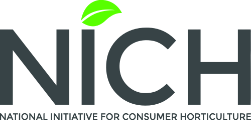Consumer horticulture contributes $196 billion to the U.S. economy and creates more than 2 million jobs
Help us spread the word. #PlantsDoThat Inside is available at the NICH website consumerhort.org/plantsdothat.
For a printable copy of the “#PlantsDoThat” infographic download this PDF.
For more information contact: Susan McCoy susan@gardenmediagroup.com.
Plants benefit society in many ways
Consumer and society engagement through plants permeates all aspects of our lives.
WASHINGTON, DC (PRWEB) MARCH 30, 2017
Horticulture positively affects people’s lives where they live, work, shop and play, according to a new report from the National Initiative for Consumer Horticulture (NICH).
The benefits of consumer horticulture are spotlighted in “#PlantsDoThat, Horticulture: The Art, Science, & Business of Plants.” The infographic illustrates how consumer horticulture contributes $196 billion to the U.S. economy and creates more than 2 million jobs.
“The story doesn’t just stop at direct economic impact,” said Casey Sclar, NICH Chair. “Consumer and society engagement through plants permeates all aspects of our lives, from providing the aesthetic backdrop to directly enriching our health and well-being.”
According to the NICH report, plants benefit society in many ways:
- Plants in the workplace reduce employee sick time by 14%
- Well-landscaped homes are more valuable; since homes represent 25% of personal wealth, outdoor plants pack a powerful personal finance punch
American’s are growing more of their own food—25% of all Americans grow berries, veggies or fruit trees - Shaded roadways save 60% of repaving costs
- America’s public gardens generate $2.3 billion in tourism spending
The infographic, developed by the NICH Economic Committee, uses data gathered by Dr. Charlie Hall, the Ellison Endowed Chair in International Floriculture at Texas A&M University. It’s the first of a number of infographics to showcase the power of plants to improve life.
The infographic series is available to companies, institutions and individuals for use in outreach to horticulture industry and non-industry members.
“We envision the infographics as a tool showcasing the power of consumer horticulture for the purpose of building support for more plants in our personal and public spaces,” says Debbie Hamrick, NICH Economic Committee chair.
For instance, Hamrick says the infographic could be used by a landscaper speaking before a City Council about a new or renovated development, or by nurserymen on Capitol Hill making the case for research, or an environmental engineer arguing for using vegetated plant systems instead of or in conjunction with gray infrastructure.
The National Initiative for Consumer Horticulture (NICH) is a consortium of industry leaders who are promoting the benefits and value of horticulture. NICH brings together academia, government, industry, and nonprofits to cultivate the growth and development of a healthy world through landscapes, gardens and plants – indoors and out. The Mission of NICH is to grow a healthy world through plants, gardens, and landscapes.
This article originally appeared on PRWEB, authored by Susan McCoy of Garden Media Group, and is available in its original format.
Additional reprinting is permitted so long as credit is given to the author and the above statement is included.




